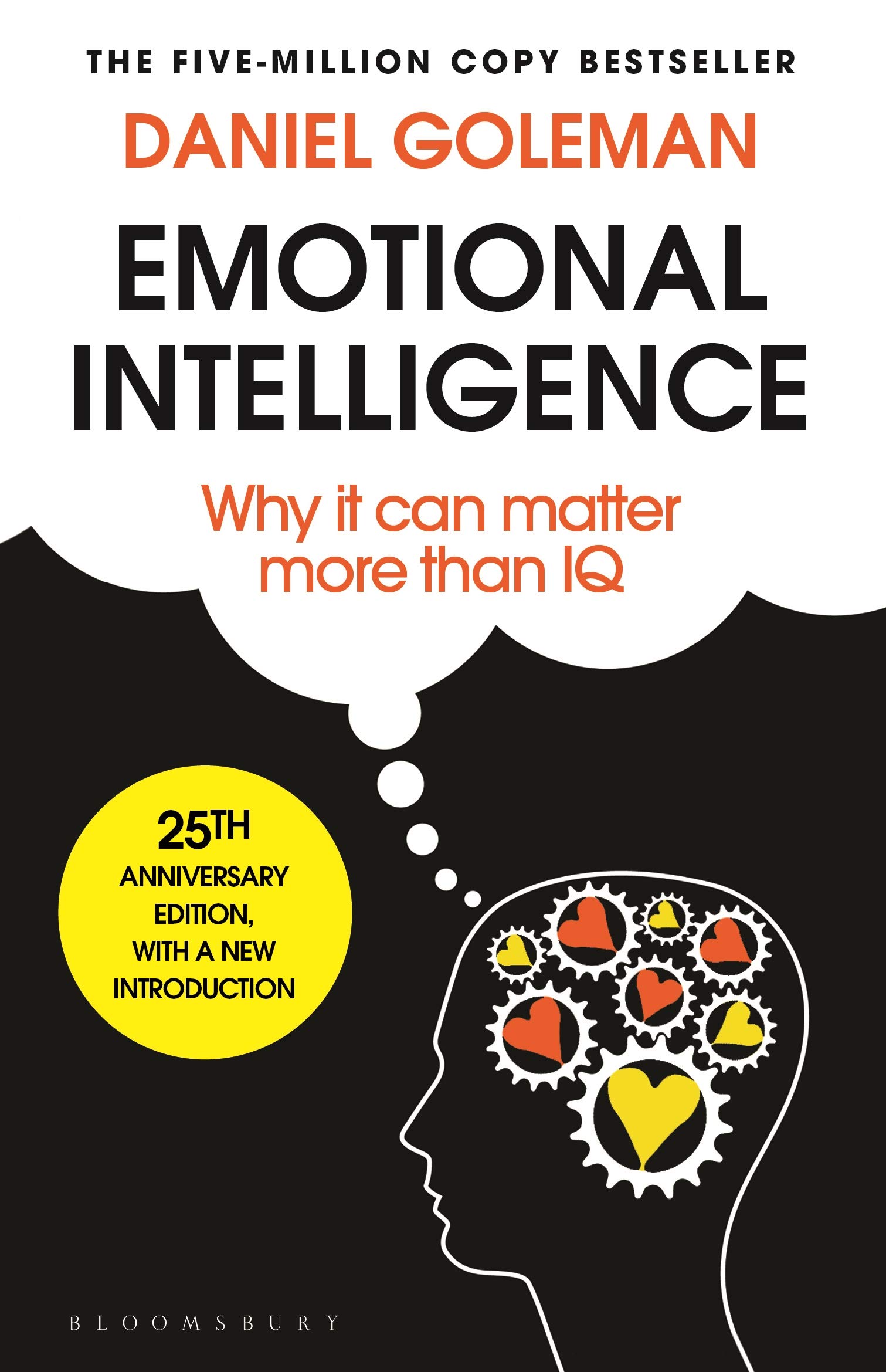
Emotional Intelligence: Why It Can Matter More Than IQ
Daniel Goleman
About the Author

Daniel Goleman
Questions & Answers
Emotional Intelligence (EQ) is the ability to recognize, understand, and manage emotions, both in oneself and in others. It encompasses self-awareness, self-regulation, motivation, empathy, and social skills. Unlike IQ, which measures cognitive abilities like problem-solving and logical reasoning, EQ focuses on emotional and social competencies. While IQ is relatively stable and influenced by genetics, EQ can be developed and improved through experience and practice. EQ is crucial for personal relationships, leadership, and overall success, as it influences how individuals interact with others and navigate life's challenges.
The brain processes emotions through a complex interplay of neural circuits. The amygdala, a key emotional center, rapidly responds to sensory inputs, triggering the body's fight-or-flight response. This direct route bypasses the neocortex, allowing for quick reactions but potentially overwhelming rationality. The prefrontal cortex, however, can modulate these responses, providing a more balanced emotional regulation. This interplay is crucial for emotional intelligence, as it allows for self-awareness, empathy, and managing emotions effectively. Implications include the importance of emotional literacy education, as it can enhance emotional regulation and social interactions, leading to better life outcomes.
Emotional Intelligence (EI) consists of key components that can be developed and applied in various life contexts. The main components include:
-
Self-awareness: Recognizing and understanding one's emotions, strengths, and weaknesses. This can be developed through mindfulness practices and self-reflection.
-
Self-management: Controlling and directing emotions effectively. Techniques like meditation and emotional regulation exercises can enhance this skill.
-
Social awareness: Understanding others' emotions and perspectives. Empathy and active listening are crucial for developing this ability.
-
Relationship management: Building and maintaining positive relationships. This involves effective communication, conflict resolution, and teamwork skills.
In different life contexts, EI can be applied as follows:
- Workplace: Enhancing leadership, teamwork, and conflict resolution, leading to improved productivity and job satisfaction.
- Education: Promoting better learning environments, social skills, and emotional regulation in students.
- Marriage and Family: Strengthening communication, empathy, and conflict resolution, fostering healthier relationships.
- Healthcare: Improving patient care through empathy, emotional support, and effective communication.
Developing EI through training, practice, and role modeling can lead to more fulfilling and successful personal and professional lives.
Emotional literacy can be integrated into education and society through several strategies:
-
Curriculum Inclusion: Incorporate social and emotional learning (SEL) into standard curricula, teaching children emotional awareness, empathy, and conflict resolution skills alongside academic subjects.
-
Teacher Training: Provide teachers with training in emotional literacy to effectively teach these skills and model them in their interactions with students.
-
Parental Involvement: Educate parents on SEL to create a consistent environment that supports emotional development at home and school.
-
School Culture: Foster a school culture that values emotional well-being, encourages open dialogue about feelings, and addresses emotional issues proactively.
-
Community Programs: Develop community programs that promote emotional literacy, such as workshops and support groups for adults and children.
-
Workplace Integration: Implement SEL in the workplace to enhance teamwork, communication, and employee well-being.
-
Media Literacy: Teach critical thinking about media and social media to help individuals understand and manage emotional responses to online content.
By integrating emotional literacy into various aspects of life, we can foster a more compassionate and productive world where individuals are equipped to navigate relationships, manage stress, and contribute positively to society.
Emotional illiteracy can lead to significant negative consequences for individuals and society. Individuals may struggle with poor social skills, difficulty in forming and maintaining relationships, and increased vulnerability to mental health issues like depression and anxiety. In society, emotional illiteracy can contribute to conflicts, violence, and reduced productivity.
To address these impacts, emotional literacy education is crucial. This involves teaching children and adults to recognize, understand, and manage their emotions and those of others. Schools can incorporate emotional literacy into their curricula, focusing on skills like self-awareness, empathy, and conflict resolution. Additionally, promoting open communication and fostering supportive environments can help build emotional intelligence, leading to healthier individuals and a more cohesive society.